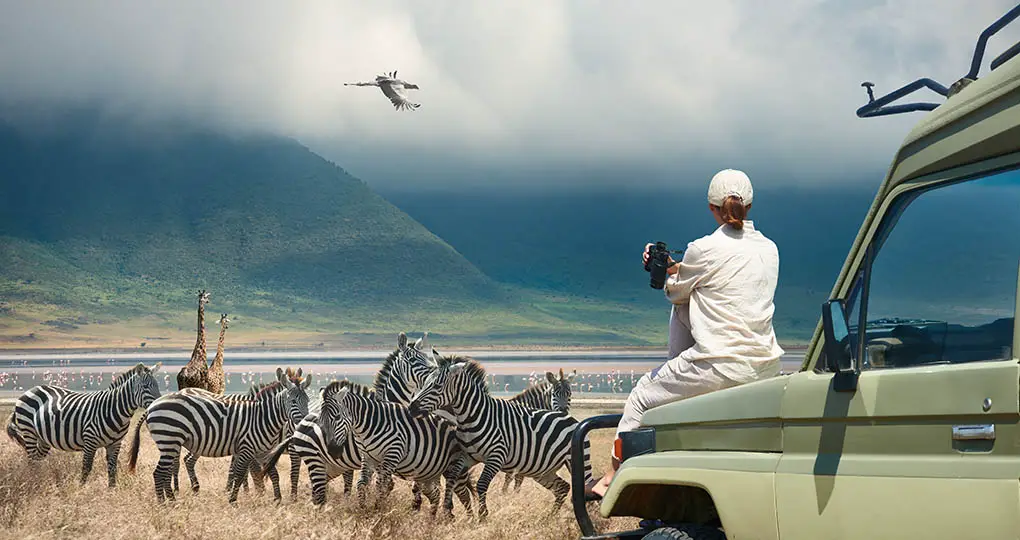Table of Contents
African destinations to visit
If there was a lesson for Africa’s tourism industry to learn during the past two years, it is the importance of local tourists. Covid-19 shut the door on the usual clientele who typically frequent African destinations to visit.
But what can African countries do to help increase the number of fellow African visitors?
After talking to several Africans from different counties, a distinct pattern emerged. Whist African tourists are very interested in visiting other African countries, several factors discourage them. Below are a few of these factors.
Points of Entry Biased Against Fellow Africans
Africa is still carrying specific legacies for the colonial era, and they still shape your Africans relate to one another. Under colonial rule, divide and conquer were used to separate the people.
The colonial borders that we still use today had this system implemented. Africans were taught to dislike other Africans, and if you have been to a land border crossing, you will see this first hand.

Border post in South Africa. Photo/News24
Immigration officials tend to treat visitors from other African nations with great suspicion and have used underhand tactics to frustrate the whole process. This is a major challenge dogging African destinations to visit.
A simple procedure to get your passport stamped should not take that long, but you could be at the border for hours. The slow processing times on land border posts ultimately increase the travel times.
Now imagine you are driving from Kenya to Zambia for an African holiday. You have to travel through at least one other country, Tanzania. That means you have to plan your journey knowing you must deal with at least two hostile borders.
This alone will put you off travelling because of the time involved in haggling with immigration officials. What is even more frustrating is European travellers’ will be treated far more hospitably than you.
Unfortunately, most African travellers’ end up sticking to attractions within their borders. This is a great shame because there are so many unique destinations at their doorsteps.
Solutions?
The simple question is, are immigration officials trained? The simple truth is. There is no adequate training. This is a straightforward situation to deal with, but it requires will from the host nation.
African countries need to train their immigration officials fairly to deal with tourists. Not everyone is an economic refugee, which should not be detrimental to genuine tourists after African destinations to visit.
Once immigration officials know the value of tourism and there is training to embrace African tourists, this problem will disappear.
Corruption
Another restrictive issue is the ugly deed known as corruption. Before setting off on a journey, one has to put aside money to give corrupt officials. This money has been given various names throughout the continent.
I remember driving through Tanzania, a police officer telling me he was so hot and could do with a mineral (soft drink). Later on, I discovered that was his way of asking for a bribe. Unfortunately, this practice starts at border posts to police roadblocks and, in some cases, tourist attractions.
Paying corrupt officials takes the money you could use for your holiday and into the pockets of greedy officials. That alone is enough to put someone off visiting a particular country.
Corruption can give a country a bad reputation and result in the loss of visitors and ultimately loss of revenue. It is hurting the economy and tourist establishments in the process. It is unfair for a boat operator on the Zambezi to lose revenue because he is not involved in a practice happening upstream.
Solutions?
Corruption is a difficult practice to get rid of, and once it is part of a society, it can take years to get rid of. The most practical way to deal with corruption is through robust anti-corruption practices.
These can be through the use of technology and whistleblower toll-free numbers. But this needs cooperation from the host government and other stakeholders.
Restrictive Business Environment in Africa
One of the most frustrating aspects of African tourism is some sectors are closed off to Africans. Take, for instance, hunting and other sectors such as airlines. These are run from Europe and North America, leading to no representation for African consumers.
If a tourist from Malawi wants to fly to Morocco, they might need to connect their flight through London. This becomes more expensive and will add more time to this trip.
Or, if you want to pay for a hunting tour in Zimbabwe, the tour operator only has a website accepting international payment options. With no representation on the ground, it can be very challenging for local tourists to participate in certain activities.

Travel to Zanzibar. [Photo/The World Pursuit]
Solutions?
The only tangible solution is for African governments to encourage locals to enter the tourism industry. The current setup promotes a situation where African tourist packages are focused on foreign tourists. Local tourists are either priced out of activities or left out altogether.
All these issues have given inter African travel a lousy reputation. For this reason alone, you will find more foreign travellers’ at African destinations to visit than Africans.
When you visit foreign tourist destinations, there is a remarkable difference. You will see more locals than foreigners, which creates a stable stream of visitors to the industry.








